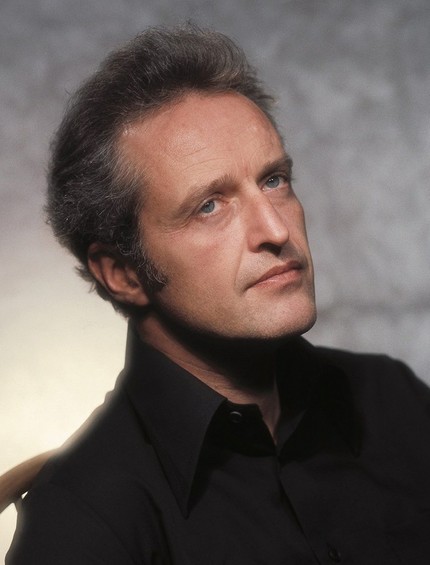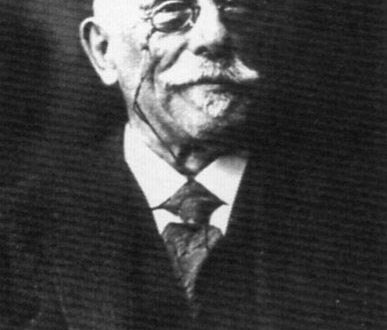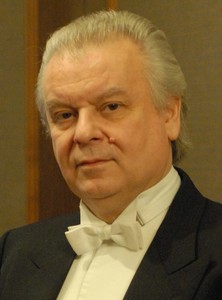
Carlos Kleiber |
Carlos Kleiber

Kleiber is one of the most sensational and exciting musical phenomena of our time. His repertoire is small and limited to a few titles. He rarely gets behind the console, has no contact with the public, critics and journalists. However, each of his performances is a one-of-a-kind lesson in artistic exactingness and conducting technique. His name already now belongs to the realm of myths.
In 1995, Carlos Kleiber celebrated his sixty-fifth birthday with a performance of Richard Strauss’s Der Rosenkavalier, almost unsurpassed in his interpretation. The press of the Austrian capital wrote: “No one in the world attracted such close attention of conductors, managers, orchestra artists and the public as Carlos Kleiber, and no one tried to stay away from all this as much as he did. None of the conductors of such a high class, concentrating on such a small repertoire, studied and performed to perfection, could not achieve unusually high fees.
The truth is that we know very little about Carlos Kleiber. Even less do we know that Kleiber, who exists outside the moments of appearance in theaters and concert halls. His desire to live in a private and strictly demarcated sphere is adamant. Indeed, there is a kind of ill-understood contrast between his personality, which is able to make amazing discoveries in the score, to penetrate its innermost secrets and convey them to an audience that loves him to madness, and the need to avoid the slightest contact with that but the public, critics, journalists, a resolute refusal to pay the price that all artists have to pay for success or for world fame.
His behavior has nothing to do with snobbery and calculation. Those who know him deeply enough speak of an elegant, almost diabolical coquetry. Yet at the forefront of this desire to protect one’s inner life from any interference is a spirit of pride and an almost irresistible shyness.
This feature of Klaiber’s personality can be observed in many episodes of his life. But it manifested itself most strongly in relations with Herbert von Karajan. Kleiber has always felt great admiration for Karajan and now, when he is in Salzburg, he does not forget to visit the cemetery where the great conductor is buried. The history of their relationship was strange and long. Maybe it will help us understand his psychology.
In the beginning, Kleiber felt awkward and embarrassed. When Karajan was rehearsing, Kleiber came to the Festspielhaus in Salzburg and stood idle for hours in the corridor that led to Karajan’s dressing room. Naturally, his desire was to enter the hall where the great conductor was rehearsing. But he never released it. He remained opposite the door and waited. Shyness paralyzed him and, perhaps, he would not have dared to enter the hall if someone had not invited him to attend the rehearsals, knowing full well what respect Karajan had for him.
Indeed, Karajan greatly appreciated Klaiber for his talent as a conductor. When he spoke about other conductors, sooner or later he allowed himself some phrase that caused those present to laugh or at least smile. He never said a single word about Kleiber without deep respect.
As their relationship grew closer, Karajan did everything to get Klaiber to the Salzburg Festival, but he always avoided it. At some point, it seemed that this idea was close to being realized. Kleiber was to conduct the “Magic Shooter”, which brought him huge success in many European capitals. On this occasion, he and Karajan exchanged letters. Kleiber wrote: “I am happy to come to Salzburg, but my main condition is this: You must give me your place in the festival’s special car park.” Karayan answered him: “I agree to everything. I will be happy to walk just to see you in Salzburg, and, of course, my place in the parking lot is yours.
For years they played this playful game, which testified to mutual sympathy and brought its spirit into negotiations regarding Kleiber’s participation in the Salzburg Festival. It was important for both, but it never materialized.
It was said that the sum of the fee was the culprit, which is completely untrue, because Salzburg always pays any money in order to get artists to the festival that Karajan appreciated. The prospect of being compared to Karajan in his city created self-doubt and shyness in Klaiber while the maestro was alive. When the great conductor passed away in July 1989, Kleiber ceased to worry about this problem, he did not go beyond his usual circle and did not appear in Salzburg.
Knowing all these circumstances, it is easy to think that Carlos Klaiber is the victim of a neurosis from which he is unable to free himself. Many have tried to present this as the result of a relationship with his father, the famous Erich Kleiber, who was one of the great conductors of the first half of our century and who played a huge role in shaping Carlos.
Something—very little—was written about the father’s initial distrust of his son’s talent. But who, except Carlos Kleiber himself (who never opens his mouth), can tell the truth about what was going on in the soul of a young man? Who is able to penetrate into the true meaning of certain remarks, certain negative judgments of the father about his son?
Carlos himself always spoke of his father with great tenderness. At the end of Erich’s life, when his eyesight was failing, Carlos played him piano arrangements of scores. Filial feelings always retained power over him. Carlos spoke with pleasure about an incident that happened at the Vienna Opera when he conducted the Rosenkavalier there. He received a letter from a spectator who wrote: “Dear Erich, I am thrilled to the core that you are conducting the Staatsoper fifty years later. I am happy to note that you have not changed a bit and in your interpretation lives the same intelligence that I admired in the days of our youth.
In the poetic temperament of Carlos Kleiber coexist a genuine, fantastic German soul, a striking sense of style and a restless irony, which has something very youthful about it and which, when he conducts The Bat, brings to mind Felix Krul, the hero of Thomas Mann, with his games and jokes full of holiday feeling.
Once it happened that in one theater there was a poster for “Woman Without a Shadow” by Richard Strauss, and the conductor at the last moment refused to conduct. Kleiber happened to be nearby, and the director said: “Maestro, we need you in order to save our “Woman Without a Shadow”. “Just think,” replied Klaiber, “that I could not understand a single word of the libretto. Imagine in music! Contact my colleagues, they are professionals, and I’m just an amateur.
The truth is that this man, who turned 1997 in July 67, is one of the most sensational and unique musical phenomena of our time. In his younger years he conducted a lot, never forgetting, however, the artistic requirements. But after the period of “practice” in Düsseldorf and Stuttgart ended, his critical mind led him to focus on a limited number of operas: La bohème, La traviata, The Magic Shooter, Der Rosenkavalier, Tristan und Isolde, Othello, Carmen, Wozzecke and on some symphonies by Mozart, Beethoven and Brahms. To all this we must add The Bat and some classical pieces of Viennese light music.
Wherever he appears, in Milan or Vienna, in Munich or New York, as well as in Japan, where he toured with triumphant success in the summer of 1995, he is accompanied by the most admiring epithets. However, he is rarely satisfied. Regarding the tour in Japan, Kleiber admitted, “If Japan wasn’t so far away, and if the Japanese weren’t paying such dizzying fees, I wouldn’t hesitate to drop everything and run away.”
This man is hugely in love with the theatre. His mode of existence is existence in music. After Karajan, he has the most beautiful and most precise gesture that can be found. Everyone who worked with him agrees with this: artists, orchestra members, choristers. Lucia Popp, after singing Sophie with him in the Rosenkavalier, refused to sing this part with any other conductor.
It was “The Rosenkavalier” that was the first opera, which provided an opportunity for the La Scala theater to get acquainted with this German conductor. From the masterpiece of Richard Strauss, Kleiber made an unforgettable epic of feelings. It was enthusiastically received by the public and critics, and Klaiber himself was won over by means of Paolo Grassi, who, when he wanted to, could be simply irresistible.
Still, it was not easy to win over Kleiber. Claudio Abbado was finally able to convince him, who offered Klaiber to conduct Verdi’s Othello, practically giving up his place to him, and then Tristan and Isolde. A few seasons earlier, Kleiber’s Tristan had been a huge success at the Wagner Festival in Bayreuth, and Wolfgang Wagner had invited Kleiber to conduct the Meistersingers and the tetralogy. This tempting offer was naturally rejected by Klaiber.
Planning four operas in four seasons is not normal for Carlos Kleiber. The happy period in the history of the La Scala theater did not repeat itself. Operas in the conductor’s interpretation of Kleiber and productions by Schenk, Zeffirelli and Wolfgang Wagner brought opera art to new, never-before-seen heights.
It is very difficult to sketch an accurate historical profile of Kleiber. One thing is certain: what can be said about him cannot be general and ordinary. This is a musician and conductor, for whom every time, with every opera and every concert, a new story begins.
In his interpretation of The Rosenkavalier, intimate and sentimental elements are inextricably linked with accuracy and analyticity. But his phrasing in the Straussian masterpiece, like the phrasing in Othello and La bohème, is marked by absolute freedom. Kleiber is gifted with the ability to play rubato, inseparable from an amazing sense of tempo. In other words, we can say that his rubato does not refer to the manner, but to the realm of feelings. There is no doubt that Kleiber does not look like a classical German conductor, even the best, because his talent and his formation surpass any manifestations of performing routine, even in its noble form. You can feel the “Viennese” component in him, considering that his father, the great Erich, was born in Vienna. But most of all, he feels the diversity of experience that determined his whole life: his way of being is intimately soldered to his temperament, mysteriously forming a one-of-a-kind mixture.
His personality contains the German performing tradition, somewhat heroic and solemn, and the Viennese, slightly lighter. But they are not perceived by the conductor with his eyes closed. It seems that he thought deeply about them more than once.
In his interpretations, including symphonic works, an unquenchable fire shines. His search for moments in which music lives a true life never stops. And he is endowed with the gift to breathe life even into those fragments that before him seemed not very clear and expressive.
Other conductors treat the author’s text with the greatest respect. Klaiber is also endowed with this dignity, but his natural ability to constantly emphasize the features of the composition and minimal indications in the text surpasses all others. When he conducts, one gets the impression that he owns the orchestral material to such an extent, as if instead of standing at the console, he was sitting at the piano. This musician has an outstanding and unique technique, which is manifested in the flexibility, elasticity of the hand (an organ of fundamental importance for conducting), but never puts technique in the first place.
Kleiber’s most beautiful gesture is inseparable from the result, and what he wants to convey to the public is always of the most direct nature, whether it be an opera or a somewhat more formal territory – the symphonies of Mozart, Beethoven and Brahms. His prowess is due in no small part to his constancy and ability to do things without regard to others. This is his way of life as a musician, his subtle way to reveal himself to the world and stay away from it, his existence, full of mystery, but at the same time grace.
Duilio Courir, “Amadeus” magazine
Translation from Italian by Irina Sorokina





